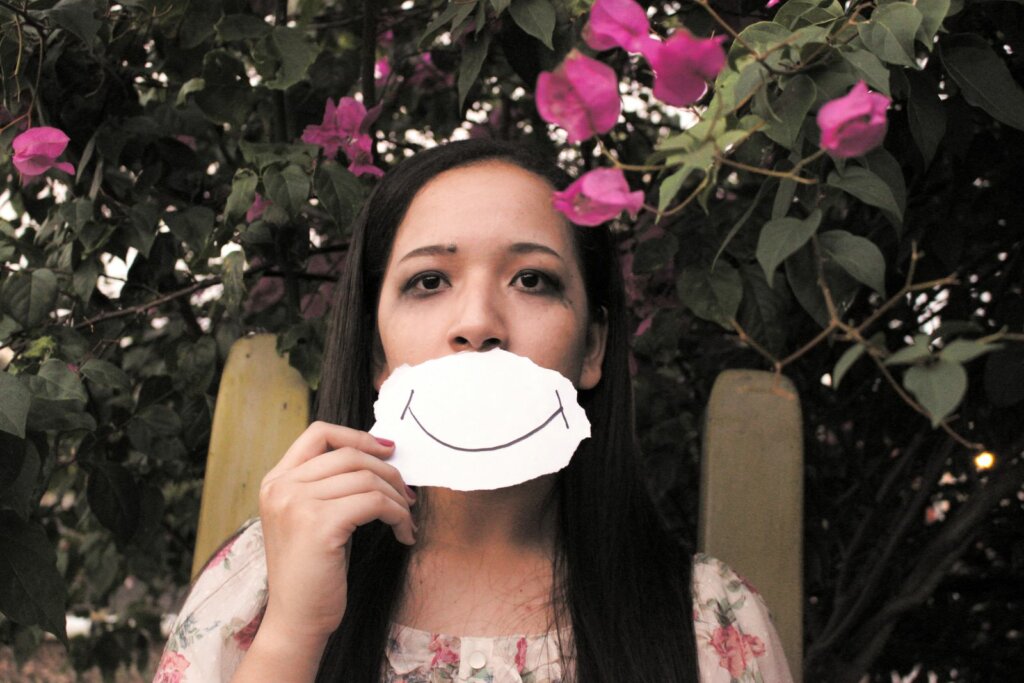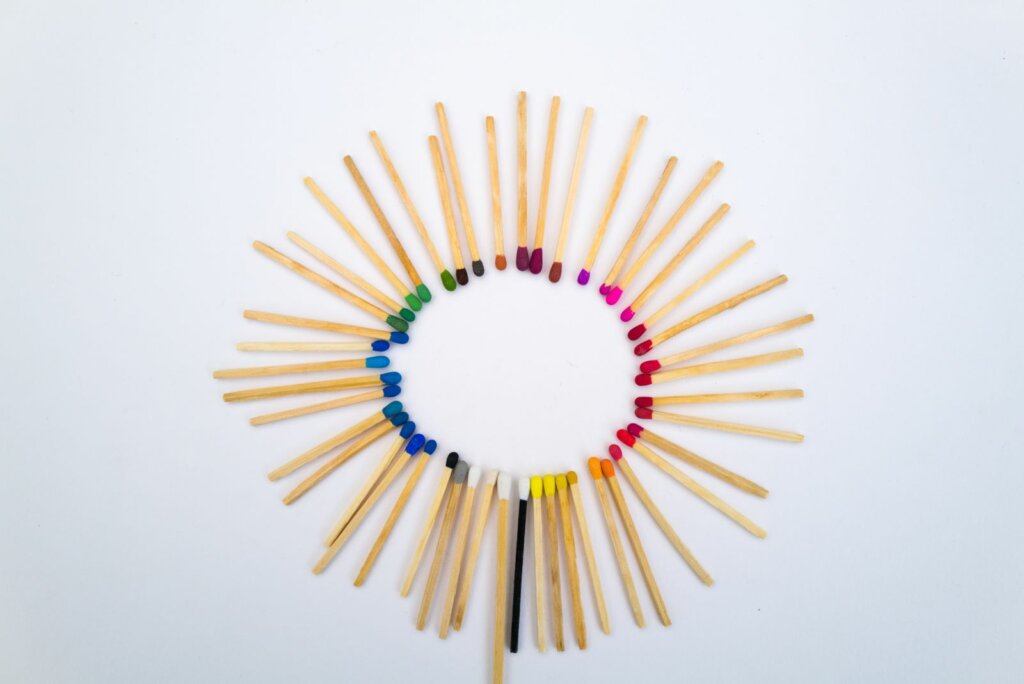I had a very extreme week. I’m working on an article about a public housing project in San Francisco beset with problems. It has rats, squatters, mold, and more. And at the same time, I’m also working on an article about a dream home in Carmel that has two outdoor kitchens, a custom six-hole putting green, and nine fireplaces.
It would be easy to say the wealthy homeowners have a better life than the people living in public housing but life is never simple like that. When I visited the housing project, I witnessed a community coming together to support one another and look out for each other. It was filled with kindness and care. Things weren’t all bad or all good.
I didn’t visit the luxury home in Carmel, nor meet the homeowners, but as we know, money doesn’t inoculate you from problems. For instance, actor Michael J. Fox was diagnosed with Parkinson’s in his 20s. As a result of the disease, he’s broken his shoulder, elbow, hand, and even his face. He told Variety, “I have aides around me quite a bit of the time in case I fall, and that lack of privacy is hard to deal with. I lost family members, I lost my dog, I lost freedom, I lost health. I hesitate to use the term ‘depression,’ because I’m not qualified to diagnose myself, but all the signs were there.”

Sweetness and sorrow can be present at the same time. Photo by Ángel López on Unsplash
Money for sure makes some things easier but nobody gets an easy, breezy life. We all experience sweetness and we all experience sorrow. I think we all want more happiness but it’s interesting to me what we do to try to achieve it. Research shows us our brains are wrong about what we think will cause happiness. We think it’s money, career success, and material objects. But it’s not. Yet, despite the lie, why do we keep heading down that track? I’m not a neuroscientist but I can tell you from a spiritual perspective that there are two forces at work in the world, vidyá and avidyá.
They could be translated into good and evil but that’s not quite right. Really, they’re about the movement toward subtlety or crudeness. Avidyá seeks to drag the mind toward crude objects and bind us to the things of this world like cars, homes, and luxury goods. It has us believing that greed, selfishness, and narrowmindedness are the best way to operate in the world. Avidyá has us forgetting that nothing comes into this world forever.
Vidyá, on the other hand, is the opposite of all that. Through intuitional practices such as prayer and meditation, we come to understand that life is better when we are generous, when we care about others, and when we try to expand our minds beyond narrow sentiments. It’s the reminder that finite objects do not bestow us with the permanent happiness we seek and instead, that’s an inside job. Vidyá reminds us that only the Divine Beloved is eternal.
Going back to sorrow and sweetness, when I turn toward a Higher Power, I understand there can be sweetness amidst sorrow and sorrow amidst sweetness. I remember that neither is in my control, not really, and they’re passing fancies. What I want, what I really, really want, only God can give me.
I dream of a world where we remember there will always be sorrow and there will always be sweetness. A world where we understand neither state is permanent. A world where we recognize we always have a choice of moving toward subtlety or toward crudity. A world where we understand it’s only in subtlety that we’ll experience the bliss that we seek.
Another world is not only possible, it’s probable.
I heard a line from Leonard Cohen’s poem Good Advice for Someone Like Me the other day: “If you don’t become the ocean, you’ll be seasick every day.” Wow. I’m pretty sure I can end this post right there and let you meditate on his idea.
I can confidently say most of the time I’m metaphorically seasick. I’m worried about an upcoming potluck, getting more clients, or if I’ll ever figure out what’s happening with my health. I wouldn’t classify myself as anxious anymore but I also wouldn’t say I’m serene. I have moments of going with the flow but most of the time I’m cussing out God and proclaiming how much I hate It because things aren’t going my way.
Cohen’s line reminds me of surrender, which means to stop fighting. It’s when I’m fighting life on life’s terms that I get into a tizzy and metaphorically seasick. It’s when I’m not accepting what is that I feel anxious. There are some things I don’t think anyone should accept – injustice, inequality, and any of the -isms such as racism and sexism – but the smaller things, the reality of my life, I’d be better off leaning into.

The peace! The tranquility! Photo by Biel Morro on Unsplash
I often joke that someone should make me the general manager of the universe because I have some GREAT ideas but alas, that’s not my role in this lifetime. In this lifetime I’m learning trust and surrender. I’m learning that the universe loves me and wants me to be happy, joyous, and free. I’m learning to let go of my attachment to how things should go and accept how things are going. Does that bring grief from time to time? Yes, it does. Am I feeling my feelings about it? Yes, I am.
What I’m learning here, in essence, is how to dissolve my ego, my little self, and merge it with the big Self. My spiritual teacher says, “If a salt doll goes to measure the sea, it will melt into it. Neither can it measure the sea, nor will it ever return; its existence will merge into the vastness of the sea, releasing it from all cares and worries. If one wishes to take the form of the sea, one will have to become the sea itself; there is no other way.”
I am becoming the sea, I am becoming the ocean. I’m recognizing not only does a higher power exist outside of me in the form of energy pervading the universe, but it also exists inside of me as me. From that framework, it’s easier for me to trust and surrender because um, hi, of course my deeper self wants things to work out for me. Of course my greater self sees a broader perspective and understands why it’s better for me to turn left when I thought I should have turned right.
When the Divine Beloved exists within me, as me, it’s easier for me to surrender and let myself become the ocean instead of bobbing along the surface and getting seasick.
I dream of a world where we let ourselves become the ocean. A world where we dissolve our little egos and surrender to something vaster than we can comprehend. A world where we accept life on life’s terms when appropriate and stop making ourselves seasick.
Another world is not only possible, it’s probable.
I’ve loosely been following the Writers Guild of America strike, which has now been joined by the Screen Actors Guild-American Federation of Television and Radio Artists. I feel like I’m watching a dystopian movie but here’s the kicker, it’s all really happening.
The CEO of Disney, Bob Iger, said during an interview at the Sun Valley annual conference, which has been touted as a “summer camp for billionaires,” that he thinks those on strike are “unrealistic.”
“There’s a level of expectation that they have, that is just not realistic,” he told CNBC. “And they are adding to the set of the challenges that this business is already facing that is, quite frankly, very disruptive.” He added that while he respects the right of the unions to “get as much as they possibly can in compensation for their people,” they must “be realistic about the business environment, and what this business can deliver.”

Maybe Bob Iger should be realistic. Photo by Blogging Guide on Unsplash
How about some context? Iger recently took over again at Disney and he has the potential to earn up to $27 million in 2023, his first full year as returned CEO. Let’s break that down a bit further. He is paid $74,175 per day whereas Hollywood writers earn on average $69,510 a year. Abigail Disney, a documentary producer who is also the daughter of Roy E. Disney said in a tweet, “You can only call your workers and partners ‘unrealistic’ if you cannot see beyond the confines of the very narrow and morally bankrupt business ideology that has set your company on this long track toward exploitation and injustice.”
Amen! Actor Sean Gunn had this to say about Iger’s comments: “I think when Bob Iger talks about, ‘What a shame it is,’ he needs to remember that in the 1980s, CEOs like him made 30 times more than what the lowest worker was making. Now Bob Iger makes 400 times what his lowest worker is and I think that’s a f***ing shame, Bob. Maybe you should take a look at yourself in the mirror and ask yourself, ‘Why is that?’ and not only why is that, is it okay? Is it morally okay? Is it ethically okay that you make much more than your lowest worker?”
Apparently, we as a society think it is. Iger isn’t the only CEO to make hundreds of times more than the lowest-paid worker. An article in the Guardian from a year ago found that in the top 300 U.S. companies, the wage gap is 670 to 1. CEOs are making an average of $10.6 million while the median worker is getting $23,968.
I can’t really conceptualize a million because it just sounds like a really big number. To break it down into something more understandable, 1 million seconds is approximately 11 days. How much do you think 1 billion seconds is? It’s more than 31 years. Years. Billionaires can’t possibly spend all the money they have – and you can try using the calculator https://neal.fun/spend/. Billionaires can purchase multiple mansions, make multiple movies, buy multiple yachts, purchase the Mona Lisa, and still have a lot of money left over. A LOT.

We don’t have to be so inequal. Photo by Jonathan Borba on Unsplash
No one person should have that much wealth and that’s why we need a maximum wage. We have a minimum wage, why don’t we have a maximum on how much one person can earn? I know, I know, everyone in the U.S. thinks they are temporarily embarrassed millionaires so fine, put the cap at a million dollars and make sure the lowest-paid worker is earning more too. In cooperative business models, the wage gap is much smaller. The highest-paid executive at Mondragon Corporation makes six times that of its lowest-paid employee.
Lest you think this is some kind of mom-and-pop operation, Mondragon employs around 80,000 people and its businesses include schools, a large grocery chain, a catering company, 14 technology R&D centers, and a McKinsey-like consulting firm. In 2021, the network brought in more than 11 billion euros in revenue.
You can succeed in business while also being more equitable and Mondragon is an example of that. To bring it back to the writers’ and actors’ strike, what I fear will happen is the studio execs will raise prices for consumers in order to keep lining their greedy pockets. But what I would like to happen is for our country’s artists to say, “No, Bob, you don’t get to make 400 times more than I do,” and then force a maximum wage on him. Stranger things can happen. This is Hollywood we’re talking about after all.
I dream of a world where there’s a cap on wealth. A world where one person isn’t allowed to accumulate billions while others must work multiple jobs just to survive. A world where the highest-paid worker makes no more than 10 times the lowest-paid one. A world where we remember there’s enough for everyone’s need but not enough for everyone’s greed.
Another world is not only possible, it’s probable.
Summer is a season that elicits nostalgia like none other for me. I long to recapture the lazy, sun-soaked days of my childhood when time stretched like Silly Putty. I want the carefree aesthetic portrayed in media – beach days, fireflies, and ice cream. In my mind, everything was great way back when. Except…it wasn’t.
It’s a quirk of the brain that we misremember the past and downplay negative events. We drop the bad stuff – sunburns, rain, fights with loved ones – and only remember the highlights. When we do remember the bad stuff, we reconstruct it to make whatever happened more enjoyable and entertaining. The time you broke your toe while hiking becomes more exaggerated, more colorful. It’s a yarn you trot out at parties to elicit laughter and pity. But there’s still some wistfulness about the past.

Nostalgia creates a warped view of things. Much like a view-master! Photo by Girl with red hat on Unsplash
Researchers call this “rosy retrospection” and we do this not only in our personal lives but also when we fantasize about how society was better “back then.” In a recent poll, six out of every 10 Americans said that “life for people like them is worse today than it was 50 years ago.” But as University of Calgary instructor Paul Fairie demonstrates in his Twitter thread, “A Brief History of Things Were Better 50 Years Ago,” we’ve been saying this since 1890!
To be clear, all humans do this and have always done this because it’s how our brains work. It’s not a relatively recent development dating back to 1890. We all fall into the nostalgia trap but the important thing to remember is it’s not true. There is no idyllic utopia in the past. Things were not better back then. Some of the bigger societal things like climate change and wealth inequality, yes, they were better years ago, but our day-to-day lives were not.
I put this to the test by rereading some of my journals and the time periods I thought were great were anything but. I was insecure or heartbroken or uncomfortable or not sleeping through the night. I was stuck or broke or irritated. In short, I was experiencing the entire range of human emotions because that’s what it means to be alive. There is always something stressful or bothersome happening just as there is always something fun or joyful happening.
A time when everything is perfect doesn’t exist except in snippets. We have perfect moments, hours. If we’re lucky, perfection stretches to days but never months or years. It’s just not possible because the nature of life is to change and move. It’s why my spiritual teacher says, “Here in the universe, nothing is stationary, nothing is fixed. Everything moves; that’s why this universe is called jagat. Movement is its dharma; movement is its innate characteristic.”
The best we can do then is feel gratitude for the perfect moments life grants us and keep our eyes trained ahead, not behind. One more quote from my spiritual teacher: “You are to look ahead, you are to look forward. If you look back, if you look behind, you are wasting your valuable time.” And time, as we all know, is precious.
I dream of a world where we remember that rosy retrospection is real and it’s likely we’re misremembering the past. A world where we understand things weren’t better in our personal lives five years ago or 50 years ago or 500 years ago. A world where we remember to keep our eyes trained ahead in order to avoid falling into the nostalgia trap.
Another world is not only possible, it’s probable.
I, like many, have a lot of feelings about the smattering of recent U.S. Supreme Court decisions. And then there are the bills targeting the LGBTQIA+ community. The trend I’m noticing is more divisiveness, more separation, and more hate, frankly. Is this what human beings are destined for? Are we doomed to splinter off into smaller and smaller groups and engage in constant “us versus them” culture wars?
Maybe yes, maybe no but according to neuroscience, our brains are wired for connection and cooperation. Neuroscientist Matthew D. Lieberman, director of UCLA’s Social Cognitive Neuroscience Lab wrote a book called Social: Why Our Brains are Wired to Connect. He says, “To the extent that we can characterize evolution as designing our modern brains, this is what our brains were wired for: reaching out to and interacting with others. These are design features, not flaws. These social adaptations are central to making us the most successful species on earth.”
There’s also a study out of Emory University led by Gregory Berns who learned that when pairs of volunteers cooperated with one another, the reward circuits of the brain were activated. These are the same regions that are activated by drugs. The activation happened only when paired with a human – when the study participants were paired with a computer, they didn’t have the same response.
Volunteers were hooked up to an fMRI scanner and invited to play the “Prisoner’s Dilemma” game. Each volunteer pressed a button to indicate when they were ready to play, and then each simultaneously pushed another button to indicate if they wished to cooperate with, or betray, the other player.
The most common outcome was volunteers mutually cooperated with one another. Berns suggests people are hard-wired to cooperate because the brain associates cooperation with reward. Others are quick to point out that correlation is not causation but I’m inclined to agree with Berns because regardless of whether it’s due to our brains or something else, we want to connect with other people. We are wired for oneness.
What so often gets in the way is exactly what we’re seeing now: socio-sentiment. Socio-sentiment means loyalty to a particular social group to the exclusion of other groups. You already know what a world dominated by socio-sentiment looks like – we’re living in it. What’s the solution?
My spiritual teacher says, “To liberate society from this unbearable situation, consciousness will have to be aroused among the people; their eyes will have to be opened by knowledge. Let them understand the what’s, the why’s, and the where’s. Thus, study is essential, very essential.”
In other words, biologically, we want to connect with others, we’re made for connection, and what’s getting in the way is cultural conditioning that says this group is good and this group is bad. We all do this. The challenge then is to see every person as a human being, not a label. Personally, I do this by practicing empathy and guessing what someone else is feeling and needing. And when I do, I feel even more connected. It’s almost as if my brain is wired for oneness and spurring me on.
I dream of a world where we promote unity instead of division. A world where we recognize we are all humans with the same feelings and needs. A world where we stop propagating socio-sentiment and instead recognize we’re all in the same group. A world where we remember we are wired for oneness.
Another world is not only possible, it’s probable.
